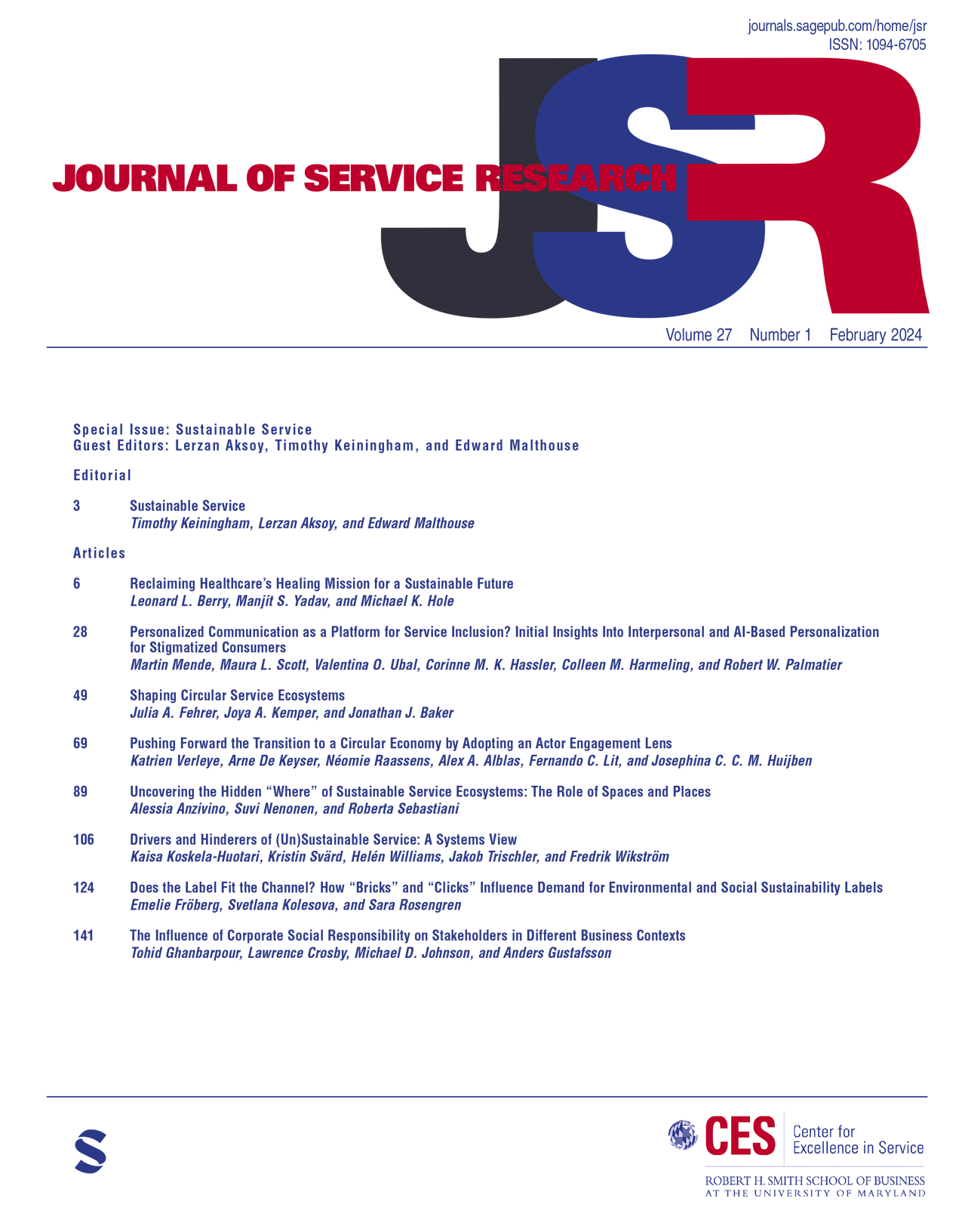我可以载你一程吗?自动驾驶汽车服务巡航框架的开发与验证
IF 8.6
2区 管理学
Q1 BUSINESS
引用次数: 6
摘要
人工智能(AI)的进步使越来越多的公司能够开发利用自动驾驶汽车(AVs)的服务。然而,采用自动驾驶汽车还存在很大的心理障碍,而且现有文献的见解不足以理解消费者对自动驾驶汽车服务的情绪。为了全面探索客户观点,我们综合多学科文献,开发了基于情感的无人驾驶智能交通服务(CRUISE)框架的客户响应,为改进自动驾驶服务的战略、目标和定位奠定了基础。随后,我们使用代表性跨国面板数据(N = 27,565)和内隐关联检验(N = 300)为支撑CRUISE框架的几个命题提供了实证支持。根据客户偏好的服务自主程度和服务风险,我们发现了四种不同的客户群体。在对全自动驾驶汽车服务的情绪反应的程度和强度方面,这些细分市场也有所不同。此外,接触有关AV服务的正面信息与成为两个最具抵抗力的细分市场成员的可能性呈负相关。我们对服务研究的贡献主要有两个方面;我们提供了:1)一篇关于自动驾驶服务的正式论文,强调了它们的独特性和应用的广度;2)基于CRUISE框架的有效战略管理方向的经验验证。本文章由计算机程序翻译,如有差异,请以英文原文为准。
Can (A)I Give You a Ride? Development and Validation of the CRUISE Framework for Autonomous Vehicle Services
Advances in artificial intelligence (AI) are increasingly enabling firms to develop services that utilize autonomous vehicles (AVs). Yet, there are significant psychological barriers to adoption, and insights from extant literature are insufficient to understand customer emotions regarding AV services. To allow for a holistic exploration of customer perspectives, we synthesize multidisciplinary literature to develop the Customer Responses to Unmanned Intelligent-transport Services based on Emotions (CRUISE) framework, which lays the foundation for improved strategizing, targeting, and positioning of AV services. We subsequently provide empirical support for several propositions underpinning the CRUISE framework using representative multinational panel data (N = 27,565) and an implicit association test (N = 300). We discover four distinct customer segments based on their preferred degree of service autonomy and service risk. The segments also differ in terms of the valence and intensity of emotional responses to fully autonomous vehicle services. Additionally, exposure to positive information about AV services negatively correlates with the likelihood of membership in the two most resistant segments. Our contribution to service research is chiefly twofold; we provide: 1) a formal treatise of AV services, emphasizing their uniqueness and breadth of application, and 2) empirically validated managerial directions for effective strategizing based on the CRUISE framework.
求助全文
通过发布文献求助,成功后即可免费获取论文全文。
去求助
来源期刊

Journal of Service Research
BUSINESS-
CiteScore
20.30
自引率
6.50%
发文量
28
期刊介绍:
The Journal of Service Research (JSR) is recognized as the foremost service research journal globally. It is an indispensable resource for staying updated on the latest advancements in service research. With its accessible and applicable approach, JSR equips readers with the essential knowledge and strategies needed to navigate an increasingly service-oriented economy. Brimming with contributions from esteemed service professionals and scholars, JSR presents a wealth of articles that offer invaluable insights from academia and industry alike.
 求助内容:
求助内容: 应助结果提醒方式:
应助结果提醒方式:


